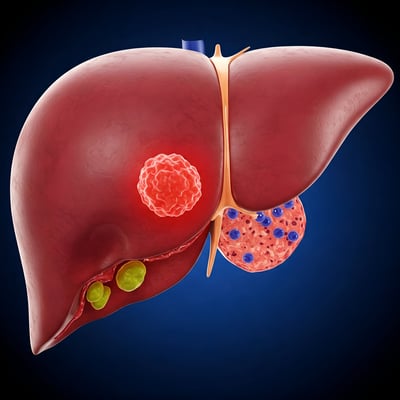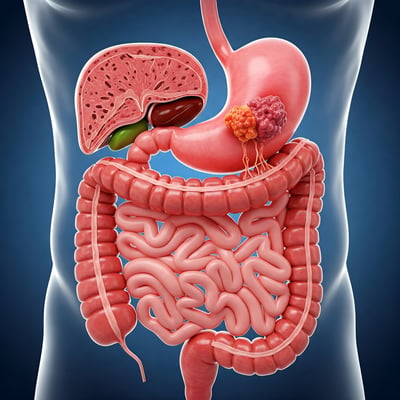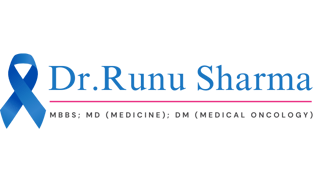🌟 Liver Cancer
Liver cancer begins in the cells of the liver, a vital organ responsible for many important functions, including detoxification, digestion, and energy storage. With early detection and modern treatments, liver cancer can be effectively managed and treated, offering patients new hope for a healthy future.
✅ Common Signs to Watch For:
Unexplained weight loss
Loss of appetite
Upper abdominal pain or swelling
Jaundice (yellowing of the skin and eyes)
General weakness and fatigue
Regular liver health check-ups and screenings, especially for those at higher risk, are key to early detection.
🌟 Treatment Options for Liver Cancer:
Treatment is carefully personalized based on the size, location, and extent of the tumor, as well as overall liver function. Common treatment options include:
Surgery:
Liver resection (removal of the tumor portion) or liver transplantation in suitable candidates.
Ablation Therapies:
Techniques like radiofrequency ablation or microwave ablation to destroy cancer cells without surgery.
Embolization Therapies:
Transarterial chemoembolization (TACE) and radioembolization deliver treatment directly to the tumor.
Targeted Therapy:
Focuses on blocking specific pathways that fuel cancer growth.
Immunotherapy:
Enhances the body's natural defenses to fight cancer, offering powerful new options for patients.
Systemic Therapy:
Advanced medicines that treat cancer throughout the body when surgery isn't suitable.


🧠 Understanding Liver Cancer:
The most common type of primary liver cancer is hepatocellular carcinoma (HCC), which often arises in livers affected by chronic diseases such as hepatitis or cirrhosis. With advances in diagnostic imaging and innovative therapies, early diagnosis and successful treatment are now more achievable than ever.
🍽️ Gastrointestinal (GI) Cancer
Gastrointestinal (GI) cancer refers to a group of cancers that affect the digestive system, including the esophagus, stomach, liver, pancreas, gallbladder, small intestine, colon, rectum, and anus. Thanks to remarkable advances in early detection and personalized treatments, GI cancers are increasingly treatable, with many patients achieving long-term remission and excellent quality of life.
✅ Common Signs to Watch For:
Persistent abdominal discomfort or bloating
Changes in bowel habits (diarrhea or constipation)
Difficulty swallowing
Blood in stool or unexplained bleeding
Unexplained weight loss
Persistent fatigue
Regular screenings like colonoscopies and imaging studies help detect GI cancers at an early and highly treatable stage.
🌟 Treatment Options for Gastrointestinal Cancer:
Treatment plans are highly individualized based on the specific location, stage, and molecular characteristics of the cancer. Common options include:
Surgery:
To remove the tumor or affected part of the digestive tract, often achieving complete cure when done early.
Chemotherapy:
Used before (neoadjuvant) or after (adjuvant) surgery to destroy cancer cells and prevent recurrence.
Radiation Therapy:
Especially useful for esophageal, rectal, and anal cancers, either before surgery or as a primary treatment.
Targeted Therapy:
Focuses on specific genetic markers of the tumor, offering a highly personalized approach with fewer effects on healthy cells.
Immunotherapy:
Strengthens the immune system to recognize and attack cancer cells, now increasingly used for certain GI cancers.
Endoscopic Treatments:
In early stages, minimally invasive procedures through an endoscope can remove cancer without the need for major surgery.


🧠 Understanding Gastrointestinal Cancer:
GI cancers develop when abnormal cells grow uncontrollably within the digestive organs. Early diagnosis plays a crucial role in offering a wide range of effective treatment options tailored to each patient’s specific needs.
contact@drrunusharma.com
© 2025 by Dr. Runu Sharma. All rights reserved design and developed by Aline Solutions Online
First Floor, RS Aesthetics and Clinics Bishan Tower, 17/1-A, Canal Rd, near Mata Bala Sundari Mandir, Jakhan Dehradun, Uttarakhand 248195, India.
